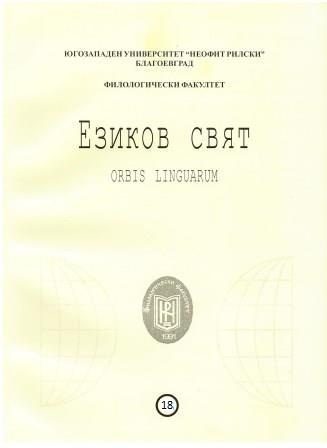ЧУЖДОЕЗИКОВИТЕ ЗАИМСТВАНИЯ В СЪВРЕМЕННАТА РУСКА СПОРТНА ЛЕКСИКА
FOREIGN BORROWINGS IN MODERN RUSSIAN SPORTS TERMINOLOGY
Author(s): Leyla DIMITROVASubject(s): Language studies, Language and Literature Studies, Theoretical Linguistics, Lexis
Published by: ЮГОЗАПАДЕН УНИВЕРСИТЕТ »НЕОФИТ РИЛСКИ«
Keywords: Russian sports terminology; English borrowings; structural-semantic and phonetic sorthographic adaptation of sports English derivatives
Summary/Abstract: The article deals with the specificity of sports terminology which includes a lot of terms taken from the theory and methods of physical education related to the scientific and educational subjects (biomechanics, sports psychology and pedagogy, hygiene, physiology, biochemistry, etc.) and are widely used in specialized literature and social intercourse. The characteristic features of Russian sports terminology are defined: ways of word formation; the trends to make the language sound more professional, jargon like; the international orientation of language and its active penetration in the native language; borrowing words from foreign languages and their variations. The issue concerning the foreign words borrowed in Russian sports terminology is viewed and the reasons for their appearance, place in the language, their distribution in semantic groups and their area of usage are discussed. It is pointed out that in the modern Russian sports terminology one can most often come upon English borrowings. The most important factors for the acquisition of English-derivatives in the sports language are emphasized. Some aspects of the phonetics-orthographic adaptation of sports English derivatives in the Russian language are examined and compared to the same processes in the Bulgarian language. It is pointed out that in the process of structural-semantic adaptation the English derivatives have a great influence on the differentiation and internalization of sports terminology in the native language-recipient: the polysemy is widened; homonymy appears, as well as some new synonymous lines. A classification of English derivatives according to their area of usage is introduced.
Journal: Езиков свят - Orbis Linguarum
- Issue Year: 18/2020
- Issue No: 1
- Page Range: 023-030
- Page Count: 8
- Language: Bulgarian

